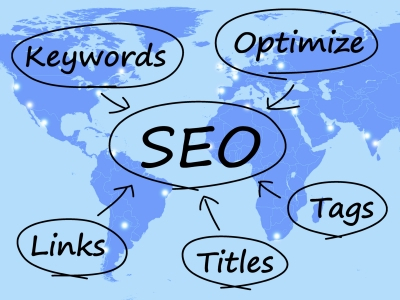Are you fighting a losing SEO battle? Trying to optimize and achieve good ranking results in the SERPs is practically impossible without a compatible and SEO friendly CMS platform.
9 Signs that Your CMS Platform Isn’t SEO Friendly
If you’re in the process of redesigning your old website, looking to create a new one, or if you’re unsure where to start or what to do for software or a content management system, the following blog post will offer guidance as to what CMS platforms are the most SEO-friendly. Take the time to read and understand the benefits an inherently friendly CMS can offer—it’ll save you a lot of future time and stress.
You’ll need a CMS for your website if you:
- update site content frequently (more than once a month)
- planning to run an onsite blog (this is highly recommended)
- if individuals who aren’t developers will be editing and maintaining site content
- and/or if you’ll be managing your website from remote locations.
In many scenarios, a CMS is a good idea—it’s very rare nowadays for a company or site owner to choose a static site over a dynamic alternative like Drupal, Wordpress, or Joomla. These platforms are free, and extremely inexpensive to customize.
When making your CMS decision, ensure that your choice is search-engine friendly. There are many basic SEO issues that plague the majority of content management systems (both custom made platforms and standard). Choosing a CMS platform that minimizes these issues, you’ll reap the benefits of SEO and have a smoothly functioning platform for content delivery.
Common Problems With Non-SEO Friendly CMS Platforms:
- They don’t allow for title tag customization.
A search engine friendly CMS allows for all title tags to be customized (page specifically). - Long, URL’s that aren’t static.
URLs pose problems for SEO when it comes to CMS platforms—ideally your platform should assist with URL creation and allow for custom keyword rich URLs, hyphenated for separation. Your CMS platform should auto generate titles based on posting titles (if you’re lazy) or enable manual changing of URLs. - Not allowing meta tag customization.
Both meta tags, meta descriptions, and robot tags are critical for a good SEO friendly CMS. - Not allowing flexibility of internal anchor texts
Having the ability to customize anchor text on internal links is critical. In order to optimize your website, your CMS platform should provide the flexibility to handle custom input. - Not enabling custom HTML tags.
A SEO friendly CMS system has the ability to offer extra functionality when it comes to “nofollow” links, HTML tags, or other subheadline or headline tags. - Not allowing for 301 redirects.
Allowing for 301 redirects are an absolute must for SEO. Unfortunately, some CMS platforms lack this feature—these redirects are crucial for taking care of expired content, pages with newer versions, solving duplicate content issues, multiple domain issues, etc… - No RSS pinging.
A CMS that doesn’t allow for pinging limits exposure—CMS that allow pinging are useful for articles, press releases, pages, and blog posts. - Poor image handling.
Alt tags on images are a must for SEO—they serve as “anchor text” for the search engines. - Poor categorization.
Just like URL creation, categorization should be flexible. Any CMS platforms offering customizable navigation will be a SEO success.
No need to struggle with CMS problems when there are platforms like Joomla, Wordpress, and Drupal available. Of course, the best CMS for your website does depend on your environment, website, budget, company, and SEO goals. Choose a platform that offers “clean URLs”, open source modules for custom (or automatic) URL renaming, easy URL redirection, creation of XML sitemaps, meta tags, a content first page structure, easy navigation, and more. Read our other blog posts on Wordpress and Drupal to learn more about SEO friendly CMS options.


